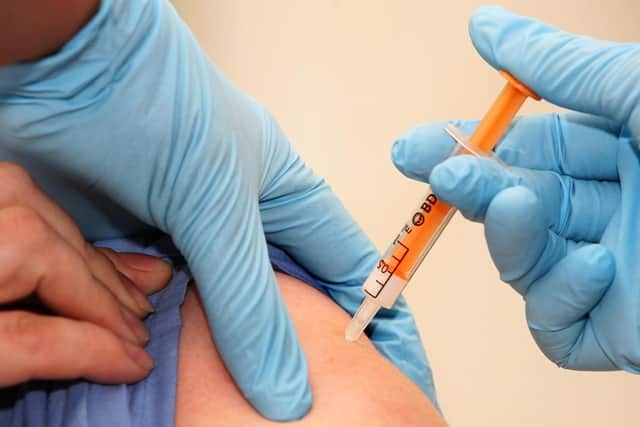Coronavirus: Vaccine could be available to public by September, says professor
and live on Freeview channel 276
Sarah Gilbert, a professor of vaccinology at Oxford University, is leading a team of researchers in the development of a vaccine that would protect the world against coronavirus.
In an interview with The Times, the professor said that she and her team have already created a potential vaccine that is due to begin human trials within two weeks.
Advertisement
Hide AdAdvertisement
Hide AdShe told the paper she is ‘80 per cent’ confident of its success, ‘based on other things that we have done with this type of vaccine’.


Most industry experts say that a vaccine could take as long as 18 months to be developed and distributed globally.
It is understood that developing a vaccine within a year to 18 months would be considered unbelievably fast by government scientists and that having one available for use across the world by the middle of next year would be seen as a remarkable achievement.
However, Prof Gilbert believes that letting volunteers from places that have not imposed lockdown measures become infected naturally as soon as possible, will accelerate the clinical trial process.
Advertisement
Hide AdAdvertisement
Hide Ad‘If one of those (places) turns out to have a high rate of virus transmission then we will get our efficacy results very quickly, so that is one strategy for reducing the time,’ she said.
‘Total lockdowns do make it harder. But we don't want the herd immunity either. We want them to be susceptible and exposed for the trials purely to test the efficacy.’
Sounding a note of caution, she said no-one can guarantee or promise it is going to work and that the autumn time frame is ‘just about possible if everything goes perfectly’.
Prof Gilbert added: ‘But we have to do all we can as fast as we can.’
Advertisement
Hide AdAdvertisement
Hide AdIn order for the vaccine to be distributed in the autumn, Prof Gilbert says the government will need to start production before it is proven to work.
She told the paper: ‘We don't want to get to later this year and discover we have a highly effective vaccine and we haven't got any vaccine to use.’
While not commenting directly on this particular trial, the Department of Health has said if vaccines currently under development in the UK prove to be safe and effective in clinical trials, there are a number of manufacturing and supply chain options available to meet the projected demands.
The government has said in order to put the UK in a position to accelerate vaccine development and manufacture, it is bringing together a wide range of sectors, including industry, academics, funding agencies, regulators, logistics and finance.
Advertisement
Hide AdAdvertisement
Hide AdProfessor Stephen Evans, from the London School of Hygiene and Tropical Medicine, said he would treat news of a possible vaccine with ‘cautious optimism’, and commended Prof Gilbert for being careful to make clear there are no guarantees.
Prof Evans, an expert in the safety of medicines and vaccines, said: ‘Cautious optimism is entirely justified in these difficult times but if you think that that's it, then you could be sorely disappointed. There are numbers of hurdles to overcome before you get to the point where the population is protected.’
He said having the vaccine ready and proven to be safe is one thing, but availability in the millions of doses required for large-scale rollout across the UK with a system for delivery is a different matter.
Prof Evans said: ‘I think getting all of that in place before the end of the year would be amazing, so it's not just having the vaccine, it's actually being able to deliver them.
Advertisement
Hide AdAdvertisement
Hide Ad‘What I would be doing and be prepared to invest in would be the system to deliver extremely large numbers of vaccine doses to the population as a whole. Such investment would pay off, whether it was the Oxford vaccine or some other that proved to be effective and have minimal harms.’